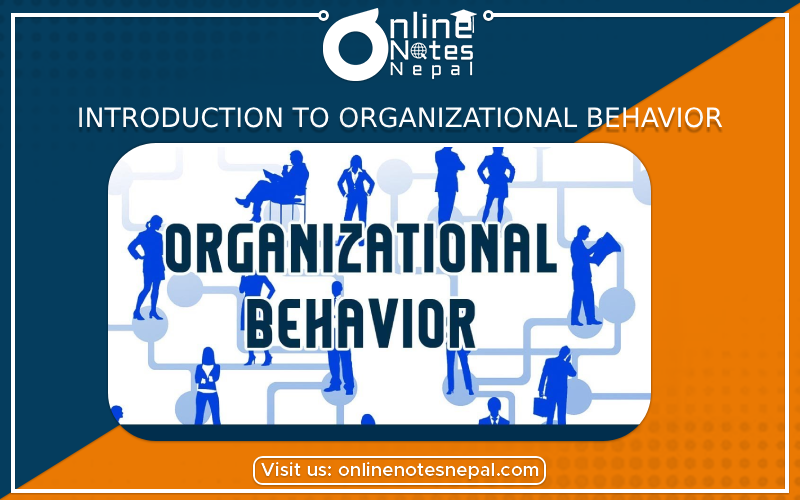Published by: Anu Poudeli
Published date: 29 Jun 2023

Organizational Behavior Introduction
Organizational behavior (OB) is a branch of research that looks at how people, groups, and systems interact with one another within an organization. It aims to comprehend and describe how workplace behavior affects organizational effectiveness. Individuals and organizations can learn how to enhamce job performance, employee satisfaction, and overall productivity by studying organizational behavior.
Key concepts of Organizational Behavior :
1. Individual Behavior : Organizational Behavior (OB) is concerned with comprehending individual behavior. It looks at how elements like personality, perception, motivation, and learning affect the attitudes and productivity of employees.
2. Group Dynamics : OB also looks into how groups behave and function, including how they are formed, how they communicate, and how decisions are made. For successful teamwork and collaboration, it's essential to comprehend group dynamics.
3. Organizational Culture : Culture is the term used to describe the common values, assumptions, and norms that influence how people behave inside anorganization. Employee attitudes, work satisfaction, and organizational effectiveness are all impacted. To establish a productive and encouraging work environment, OB assists in understanding and controlling organizational culture.
4.Leadership and Power : Successful leadership is essential to the success of any company. The impact of leadership on worker motivation and performance, as well as the use of power and influence, are all topics covered in OB.
5. Organizational Structure : OB looks into how organizational structures are created and the connections between various departments and roles. It investigate how organizational structure impacts internal communication,deccision-making, and coordination.
6. Change Management : Organizational behavior can be used to better understand how people and organizations react to change. It investigates the dynamics of organizational change, change resistance, and effective change management techniques.
Organizational behavior applications :
1. Employee Recruitment and Development : OB offers insights on appreciating individual characteristics and forecasting work success. It aids in creating efficient selection procedures and training programs to improve staff competences and skills.
2. Employee Motivation and Job Satisfaction : OB assists in identifying employee motivation and developing incentives and reward programs that promote excellence in work output.
3. Team Building and Collaboration : Collaboration and Team bulding are supported by OB, which offers strategies and resources for forecasting both. It aids in boosting teamwork, dispute resolution, and communication within the organization.
4. Leadership Development : OB supports the development of leaders by equipping them with the knowledge and abilities they need to lead and inspire their teams. It assista the organizational in identifying and cultivating future leaders.
5. Managing Organizational Change and Development : OB prinitiatives into action, and developing provides insights into doing so. It aids in identifying organizational issues, putting change initiatives into action, and developing a culture that encourages creativity and adaptability.
In conclusion, the study of human behavior in organizational is a multidisciplinary field known as organizational behavior. Through the study of OB, people and organizational may improve organizational effectiveness, better understand employee behavior, and establish a productive worlplace that promotes both individual and group achivement.